Hong Kong News

Flexibility urged as thousands of Hong Kong helpers scramble to get Covid-19 tests
Nearly 40,000 domestic workers in Hong Kong still need to arrange Covid-19 screenings if they are to meet the Sunday deadline for mandatory testing, though some have called for flexibility on the part of authorities as they scramble to comply with the government order.
On April 30, health authorities ordered the city’s roughly 370,000 domestic helpers to undergo compulsory Covid-19 testing by May 9, a move that was immediately slammed as discriminatory by migrant worker groups and rights activists.
The government, however, defended the move as necessary given the involvement of potentially more virulent mutated strains of the coronavirus. So far, five helpers have been found to be carrying mutated strains, three of them through the mass testing.
Some 201,000 domestic workers were tested between last Saturday and this Tuesday, while another 130,000 were scheduled to be screened by Sunday, according to figures released by the Labour Department.
While those figures do not include Covid-19 specimen samples submitted to the Hospital Authority or private clinics, they suggest another 39,000 helpers still need to be tested over the next three days, on top of the tens of thousands already on the schedule.
“To avoid long wait times on the weekend, we encourage foreign domestic workers to receive testing today and tomorrow as far as possible,” a government spokesman said on Thursday. “We appeal to employers to allow their foreign domestic helpers to receive testing on a weekday.”
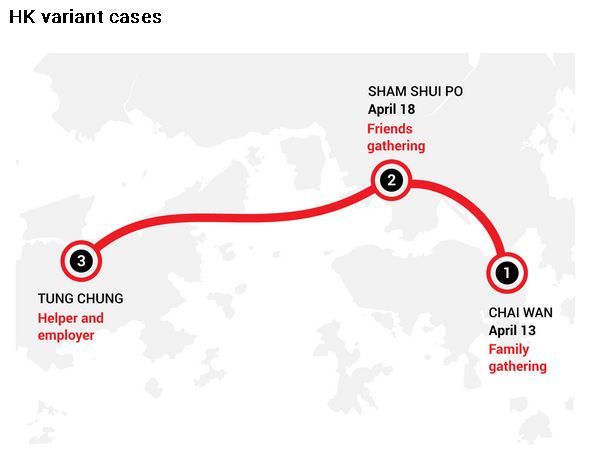
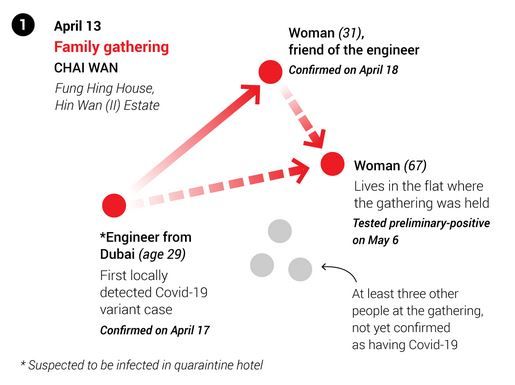
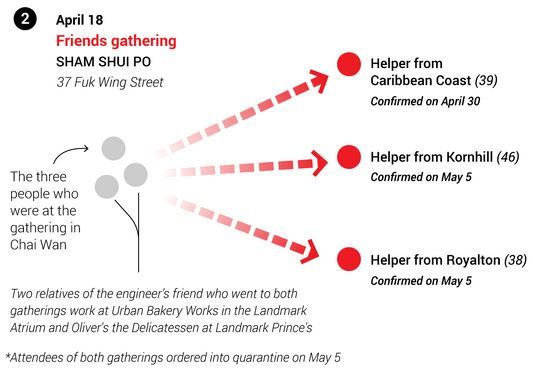
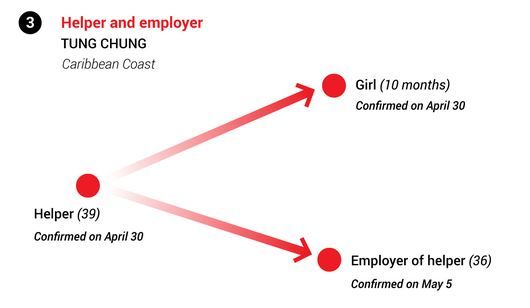
The Food and Health Bureau told the Post that “there should be enough slots and methods” for domestic workers to get screened by the deadline. Between Thursday and Sunday, it said, there were still about 39,000 booking slots open at 21 community testing centres across the city.
In addition to booking a testing slot online, helpers or their employers could obtain deep throat saliva specimen collection packs from 121 post offices, vending machines in 20 MTR stations and at 47 designated general outpatient clinics, the bureau spokesman added.
If a person within a group under a compulsory testing order is found to not have been screened by the deadline, they can be fined HK$5,000 (US$644) – a provision that has sparked fears among domestic workers, whose minimum wage is just HK$4,630 a month.
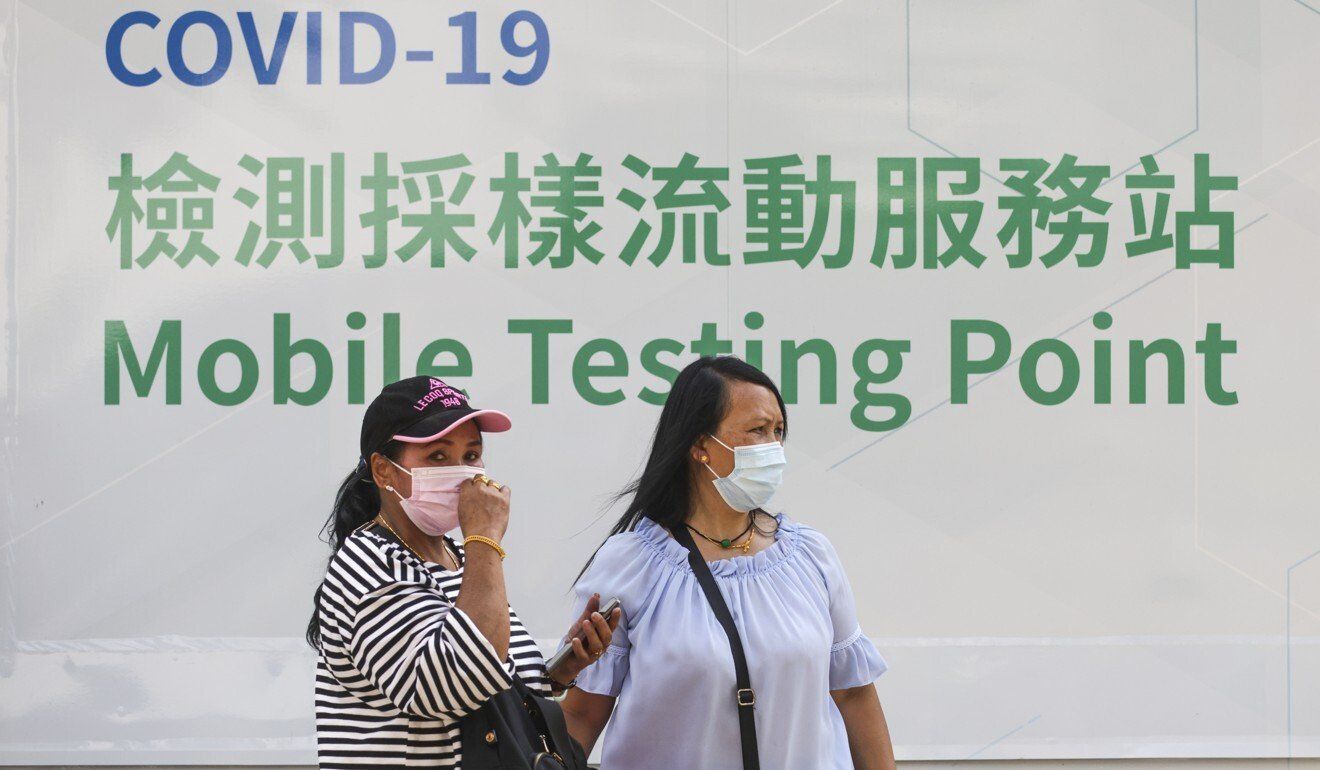 Health officials have said there ‘should be enough slots’ for all helpers to be tested before Sunday’s deadline.
Health officials have said there ‘should be enough slots’ for all helpers to be tested before Sunday’s deadline.
Betty Yung Ma Shan-yee, chairwoman of the Hong Kong Employers of Overseas Domestic Helpers Association, said employers were worried about the health and safety of their workers, as well as the potential spread of mutated coronavirus strains.
“Domestic workers leave their home behind to work and make a living in Hong Kong, and they deserve to be treated with respect, especially when it comes to their health and safety at a time like this,” Yung said.
“I hope all employers find a way to help the domestic workers get screened, because we care about our helpers and we don’t want any further spread among the community.”
She added that employers should shoulder some of the financial burden of paying fines if they did not do their duty in helping domestic workers arrange for testing by the deadline.
However, Yung said, employers had largely been compliant with the testing order for helpers given the recent quarantine orders issued to about 1,000 people living in buildings where mutated strains were found.
Thomas Chan, chairman of the Hong Kong Union of Employment Agencies, agreed with that assessment, saying his group had not received any complaints from employers who could not find a way to get their helpers tested in time.
“Only an extreme few would be uncooperative,” he said.
Chan also appealed for more understanding and flexibility for both helpers and employers. He explained some employers could not get time off from work to take care of their children or elderly family members on weekdays to allow time for their helpers to get tested.
Johannie Tong Hiu-yan, from the advocacy group Mission for Migrant Workers, said government departments had done little to help spread the word about the compulsory testing order among helpers and employers after it was hurriedly announced last Friday.
Tong also called for authorities to be lenient when checking the testing records of domestic workers, as some might not make the cut-off due to work arrangements or miscommunications with their employers.











